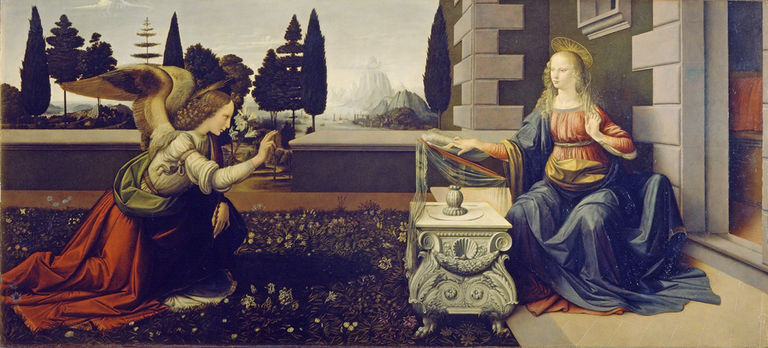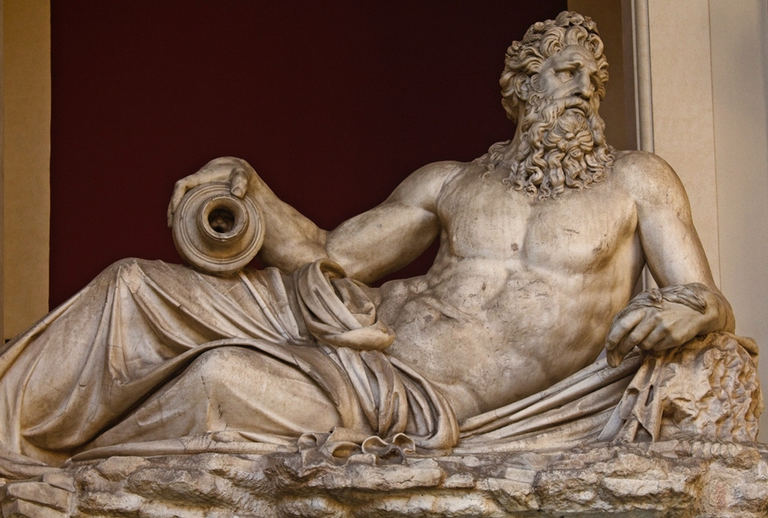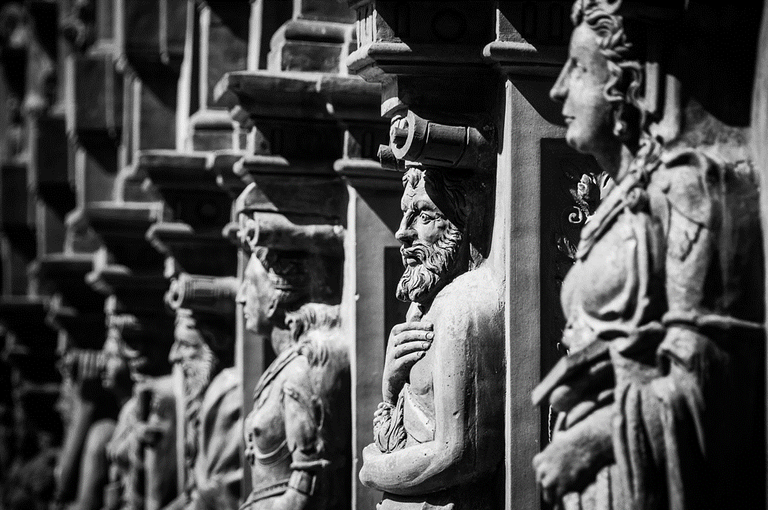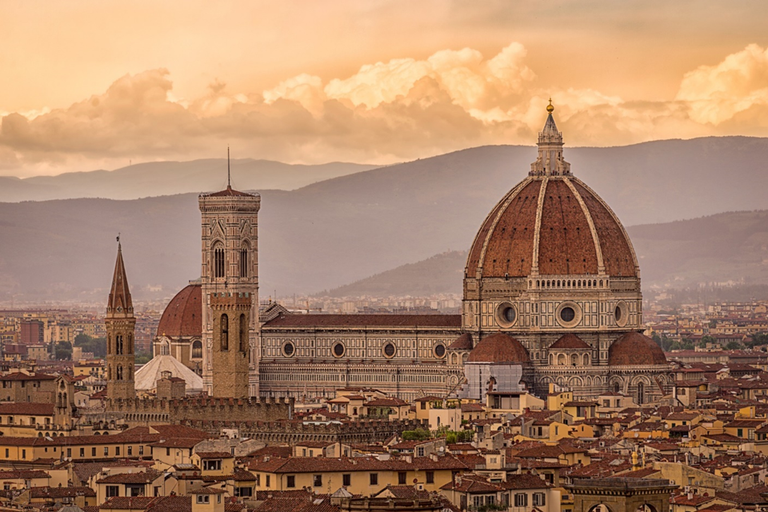It's there any similarity between Hive and the middle age Renaissance Humanism? What do you think?
Here are some, but first, we need to give a few steps back, more than 600 years ago...
Before the Renaissance:
The usual was that we humans were not considered capable of been "good thinkers" by the other "superior" humans, uh huh, those ones in charge of the power. What was then, the way we should feel? The usual was that we were supposed to felt sinful and fearful because we needed to be guided every step we took, this is extremely sad and wasteful, because we should be worried about what will happen to us when we finally die. By then the church had his fingers in almost everything, from the day to day live of the common people through the priests, till high level politic decisions of the different courts in the European countries via the archbishop and the Pope.
The Renaissance:
Then the Humanism appeared during the XIV century of the hands of Petrarch (Francesco Petrarca) and a few others like Boccaccio and Bracciolini, and yes as you can figure, it began in Italy. Of course, this event didn't appear like a rabbit from a magician's hat, there were previous steps taken a few centuries back when Islamic and Jewish cultures in the Middle East translated, discussed, and preserved these ancient Greek and Roman texts that were rediscovered by Europeans in the era we know now as Renaissance.
But what the heck meant to be a Humanist during the Renaissance? The most common and boring answer, even when is true, is that Renaissance Humanism was the study of classical Greek and Roman books. The goal was promoting new norms and values for the society, but be aware that these goals were a break from the heavy weight religious worldview of those times. In summary the goal was to base thinking in reason and logic, being curious, experimenting, questioning what meant to be humans was OK and using the local language in place of Latin or French that were the official languages of the church.
¿Hay alguna similitud entre Hive y el Humanismo Renacentista de la Edad Media? ¿Qué opinas?
Aquí hay algunos, pero primero debemos retroceder unos pasos, más de 600 años atrás...
Antes del Renacimiento
Lo habitual era que los humanos no fuésemos considerados capaces de ser "buenos pensadores" por los otros humanos "superiores", um huh, los que estaban en el poder. ¿Cuál era entonces la forma en que debíamos sentirnos? Lo más usual es que nos sintiéramos pecadores y temerosos porque necesitábamos que nos guiaran por cada paso que dábamos, esto es a la vez triste y un gran desperdicio, porque se suponía que debíamos estar preocupados por lo que nos pasaría cuando finalmente muriésemos. Para entonces la iglesia tenía sus manos en casi todo, desde la vida cotidiana de la gente común a través de los sacerdotes, hasta las decisiones políticas de alto nivel de los diferentes reinados de los países europeos a través de los arzobispos y el Papa.
El Renacimiento:
Entonces apareció el Humanismo durante el siglo XIV de la mano de Francesco Petrarca y algunos otros como Boccaccio y Bracciolini, y sí como puedes imaginar comenzó en Italia. Por supuesto, este acontecimiento no apareció como un conejo salido del sombrero de un mago, sino que hubo pasos previos dados unos cuantos siglos atrás cuando las culturas islámica y judía de Oriente Medio tradujeron, discutieron y conservaron antiguos libros romanos y griegos que fueron redescubiertos por los europeos en la época que ahora conocemos como Renacimiento.
Pero ¿qué pepinos significaba ser un humanista durante el Renacimiento? La respuesta más común y aburrida, aunque sea cierta, es que el Humanismo del Renacimiento es el estudio de los textos clásicos griegos y romanos. El objetivo era promover nuevas normas y valores para la sociedad, pero hay que tener en cuenta que estos objetivos eran una ruptura con la pesada visión religiosa del mundo de aquellos tiempos. En resumen, el objetivo era asentar el pensamiento en la razón y la lógica, siendo curiosos, experimentando, que hacernos la pregunta de que significaba ser humano estaba bien, utilizando la lengua local en lugar del latín o el francés que eran los lenguajes oficiales de la iglesia.
The Comparison between Hive and the Humanism Renaissance:
Just be aware than in our case the most common way of thinking nowadays is the “old social media”. We are so used to them that we don't question why we keep using them massively, following "influencers", and giving "likes" to left and right, wasting a huge amount of our time. So here are a few items to consider:
You have the choice about what you read and view. You decide what to look for, there are not intrusive suggestions dictating what to view next.
There are not algorithms that influence the time you want to spend in Hive, you search, establish to whom to follow, or what information you’ll like to look and that’s it. I’ve catch myself wasting 30 minutes or more in YouTube, because I do like to see the TV show The Voice in different countries and the algorithm knows me offering tempting video after video.
You can practice being curious and learn while creating content, and no one will write you a hateful note. Yes, there will be guidelines to follow during those first steps and that learning too much information in a short period of time could be uncomfortable, but the idea is to learn from our mistakes.
Remember the Medici? The ultra rich family of bankers that provided support to great artists like Michelangelo Buonarroti and Leonardo da Vinci, they were imitated by a bunch of rulers across Europe when they become great patrons of the arts. In the Hive ecosystem we all become patrons in smaller or large scale, of the content that we find interesting.
A. This one is not a similarity, it’s a difference but indeed a good one. The Renaissance affected perhaps to 25% of the population at the most, in Hive we all can become participants and actively produce content and provide patronage to the work of others.
Thanks for staying with me with this rant about the similarities between the Renaissance Humanism and the Hive Community.
Comparacion entre Hive y el Humanismo Renacentista:
Sólo hay que tener en cuenta que en nuestro caso la forma de pensar más común hoy en día es la de las "viejas redes sociales". Estamos tan acostumbrados a ellas que no nos cuestionamos por qué seguimos utilizándolas masivamente, siguiendo a "referentes", y dando "likes" a diestra y siniestra, desperdiciando una enorme cantidad de nuestro tiempo.
1.Tienes la posibilidad de elegir lo que lees, ves. Tu decides la informacion que quieras buscar, no hay intrusas listas de sugerencias determinando lo que debas seguir viendo.
2.No hay algoritmos que influyan en el tiempo que quieres pasar en Hive, buscas, estableces a quién seguir, o que quieres leer o mirar y ya está. Me he sorprendido perdiendo 30 minutos o más en YouTube, porque me gusta escuchar el programa de TV La Voz en diferentes países.
3.Puedes practicar la curiosidad y aprender mientras creas contenidos, y nadie te enviará un mensaje lleno de odio. Sí, hay pautas que seguir durante esos primeros pasos y que será difícil por tantas cosas que aprender en tan corto tiempo, pero la idea es crecer a partir de nuestros errores.
4.¿Recuerdas a los Medici? La riquísima familia de banqueros que apoyó a grandes artistas como Miguel Ángel y Leonardo da Vinci, fueron imitados por un montón de gobernantes de toda Europa al convertirse en grandes mecenas de las artes. En el ecosistema Hive todos nos convertimos en mecenas en menor o mayor escala, de los contenidos que nos resultan interesantes.
A.Esta no es una similitud, pero definitivamente es una buena diferencia. El Renacimiento afecto quizás a un 25% de la población como máximo, en Hive todos podemos convertirnos en partícipes, producir activamente contenidos y soportar el trabajo de otros.
Gracias por acompañarme en este desvarío sobre las similitudes entre el Humanismo Renacentista y la Comunidad Hive.
Resources - Recursos:
Translation - Traducción: DeepL
Pictures - Fotografias: Pexels and Pixabay
New World Encyclopedia - Italian Renaissance / Enciclopedia del Nuevo Mundo - Renacimiento Italiano




Congratulations @gerardoruiz! You have completed the following achievement on the Hive blockchain and have been rewarded with new badge(s):
Your next target is to reach 200 upvotes.
You can view your badges on your board and compare yourself to others in the Ranking
If you no longer want to receive notifications, reply to this comment with the word
STOPCheck out the last post from @hivebuzz: